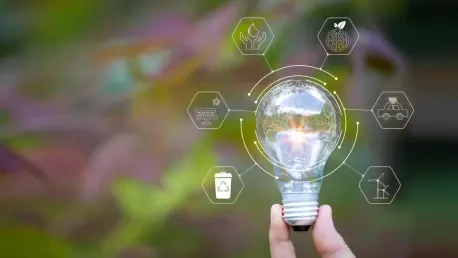In the realm of corporate carbon strategies, the revisions to the Greenhouse Gas (GHG) Protocol’s Scope 2 rules are a pressing concern. As these rules dictate how organizations report and manage greenhouse gas emissions from electricity consumption, their updates have profound implications for clean energy investments. This is particularly critical now as global energy demands soar and federal initiatives for clean energy wane. Understanding how these rule changes might hinder or boost clean energy efforts is essential for businesses and policymakers alike.
Context of Scope 2 Rule Adjustments
This comprehensive revision of the Scope 2 rules, first set into motion with guidance introduced in 2015, is vital for maintaining the momentum of private sector commitments to renewable energy. Since its inception, the guidance has driven the creation of nearly 100 gigawatts of new renewable energy capacity. Current proposals, however, suggest a shift to “24/7” accounting, where energy consumption must exactly match clean energy production hourly rather than the current annual methodology. Furthermore, this revision may limit the geographical reach of clean energy procurements, complicating the landscape for companies invested in voluntary emission reduction.
Concerns loom large among businesses and industries anticipating possible negative impacts on the voluntary clean energy marketplace. Given the intricacy of markets without retail choice, questions arise around the capability of firms to procure clean energy under these conditions. For instance, surveys indicate over 70% of companies may struggle with existing procurement contracts if they face more stringent geographical constraints.
Analysis of Research and Key Insights
Methodology
The research utilized comprehensive surveys and in-depth interviews with nearly 100 leading entities involved in the clean energy sector. This approach enabled a thorough analysis of the implications of proposed rule changes, particularly focusing on stakeholder experiences and regional market dynamics.
Findings
The study’s findings are multifaceted, detailing significant resistance to the proposed Scope 2 revisions. Companies reported a high risk of obsolescence in current contracts due to narrowed market boundaries and hourly energy matching requirements. Moreover, approximately 65% of respondents in restricted markets highlighted pronounced obstacles to securing energy supply that aligns temporally with their consumption.
Practical Implications
Adhering to more stringent accounting for energy consumption presents challenges, particularly in regions lacking comprehensive market frameworks. Nonetheless, the drive for enhanced accounting on emissions impact could incentivize stakeholders to adopt practices that substantively contribute to grid decarbonization. The potential modifications underscore the necessity for policies that balance rigorous standards with pragmatic market conditions, ensuring industry growth and emission reductions continue apace.
Considerations for Reflection and Potential Developments
Critical Reflections
Reflecting on the challenges and opportunities of this research underscores the delicate balance between rigorous emissions reporting and market feasibility. These revisions demonstrate that while precision may lead to better alignment between energy consumption and production, it could simultaneously complicate procurement, especially where market choice is limited.
Future Directions
For future investigation, exploring the elasticity of corporate responses to regulatory changes can shed light on adaptive strategies within the renewable energy sphere. Additionally, focusing on markets with limited retail options can offer insights into how rule changes might disproportionately affect different sectors or regions, informing better-targeted policy adjustments.
Closing Thoughts
The implications of the recent updates to the Scope 2 Guidance offer compelling insights into the evolution of corporate energy practices. These revisions could reshape the strategic landscape for clean energy procurement, necessitating adaptive measures to sustain the industry’s forward momentum. As stakeholders navigate this complex terrain, their experiences and feedback will be crucial in refining regulation, ensuring strategic corporate goals align with broader societal carbon reduction objectives. Addressing these challenges proactively will help secure a robust path forward for both policy and practice in global decarbonization efforts.









